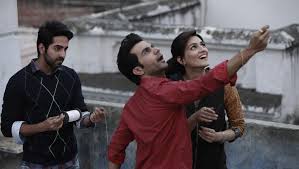
Revival of Small Town Stories in 2005 Indian Cinema
In 2005, Indian cinema witnessed a significant revival of small-town narratives with films that resonated with audiences across the country. "Bunty Aur Babli," directed by Shaad Ali, became a cultural phenomenon, showcasing the aspirations of two small-town youths who venture into big cities to fulfill their dreams. The film beautifully blended humor with colorful fashion, captivating viewers and sparking a trend that influenced local tailors in Uttar Pradesh to mimic the stylish outfits sported by the lead characters.
Meanwhile, "Black," directed by Sanjay Leela Bhansali, made a remarkable impact by placing characters with profound disabilities at the forefront. Featuring Rani Mukerji and Amitabh Bachchan, the film explored the deep bond between a teacher and his student, challenging stereotypes surrounding disability. It ignited conversations about acceptance and inclusion, pushing the boundaries of how such narratives were portrayed in mainstream cinema.
The year also saw the emergence of vibrant comedies like "No Entry" and "Garam Masala," which entertained audiences with their humor and star-studded casts. Another notable film was "Salaam Namaste," which introduced one of Bollywood's first live-in couples, played by Saif Ali Khan and Preity Zinta. Their relatable story of navigating love and relationships in a modern context resonated with younger audiences and added to the evolving narrative style of Indian cinema.
Overall, 2005 was a defining year in Bollywood, marking a departure from the traditional storytelling style. Films like "Bunty Aur Babli" and "Black" not only entertained but also brought crucial social issues to the forefront. The innovative storytelling and unique character portrayals in these films helped shape a new era in Indian cinema, paving the way for future filmmakers to explore diverse narratives and themes.
As we celebrate 25 years of Indian cinema, it is essential to recognize how these films transformed the industry's landscape, allowing for more inclusive and relatable storytelling that continues to resonate with audiences today.











